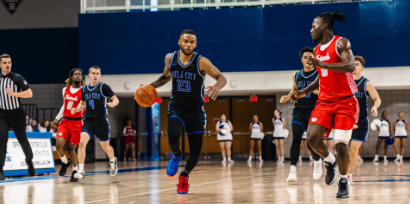Athletics and Sports Programs at Universities University life is more than just academics; it’s a time for personal growth, discovering passions, and building lifelong skills. One of the most enriching aspects of university life is participation in athletics and sports programs. These programs not only provide a break from academic rigors but also foster physical health, mental well-being, and a sense of community.
History of University Sports
University sports have a rich history, dating back to the 19th century when the first collegiate competitions began. Initially, sports were informal, but they quickly grew into organized programs with official rules and governing bodies. Milestones such as the establishment of the National Collegiate Athletic Association (NCAA) in the United States have shaped the landscape of university athletics, ensuring standardized competition and academic integrity.
Types of Sports Programs
Universities typically offer three main types of sports programs:
- Intramural Sports: These are recreational sports leagues organized within the university, allowing students to compete against each other in a fun and relaxed environment.
- Club Sports: These are student-run organizations that compete against other university clubs, often offering a higher level of competition than intramurals but less than varsity sports.
- Varsity Sports: These are the most competitive programs, with athletes representing the university in intercollegiate competitions, often with significant commitment and rigorous training schedules.
Benefits of University Sports Programs

Physical Health
Participating in sports is an excellent way to maintain physical health. Regular exercise through sports improves cardiovascular health, increases strength and conditioning, and helps prevent injuries by promoting flexibility and muscle tone.
Mental Health
Engaging in sports also provides mental health benefits. It serves as a stress reliever, builds resilience by teaching how to handle wins and losses, and fosters social connections, which are crucial for emotional support and mental well-being.
Academic Performance and Athletics
Contrary to the belief that sports distract from academics, many student-athletes excel academically. Sports teach valuable time management skills, instill discipline and focus, and often come with academic support systems designed to help athletes succeed both on the field and in the classroom.
University Facilities and Resources
Universities invest heavily in sports facilities and resources. These include state-of-the-art gyms, fitness centers, sports fields, and courts. Additionally, professional coaching staff and training programs are available to help student-athletes reach their full potential.
Scholarships and Financial Support
For many students, athletic scholarships provide a pathway to higher education. Universities offer various scholarships, grants, and financial aid options to support student-athletes. These financial supports can cover tuition, accommodation, and other expenses, making education more accessible.
Balancing Academics and Athletics
Balancing sports and academics can be challenging, but many students manage to excel in both areas. Strategies for success include effective time management, utilizing university support systems such as tutoring and academic advising, and learning from the experiences of successful student-athletes who have navigated this balance effectively.
Challenges in University Athletics
Despite the benefits, university athletics come with challenges. Injuries can be a significant risk, academic pressure can be intense, and balancing sports, studies, and social life can be demanding. However, with the right support and strategies, these challenges can be managed effectively.
University Sports Culture
Sports play a crucial role in university culture, fostering school spirit and traditions. Events like homecoming games and pep rallies bring the community together, while alumni involvement helps maintain strong connections between past and current students.
Future of University Sports Programs
The future of university sports looks promising, with advancements in technology enhancing training and performance, evolving student interests diversifying the range of sports offered, and policy changes aimed at improving athlete welfare and inclusivity.
Case Studies of Successful Programs
Several universities have exemplary sports programs that serve as models for success. By examining these programs, we can learn valuable lessons about what makes a university sports program successful, from strong leadership to comprehensive support systems for athletes.
Conclusion
In summary, university sports programs play a vital role in the holistic development of students. They offer numerous benefits, from physical and mental health to academic success and community building. As universities continue to evolve, these programs will remain a cornerstone of student life, encouraging participation and fostering a lifelong love of sports.
FAQs
What are the most popular sports at universities?
The popularity of sports varies by region, but common favorites include football, basketball, soccer, and track and field. These sports attract large audiences and significant student participation.
How can students get involved in university sports programs?
Students can get involved by joining intramural teams, club sports, or trying out for varsity teams. Most universities have information sessions and fairs at the beginning of the academic year to help students learn about available opportunities.
What types of scholarships are available for student-athletes?
Universities offer a range of athletic scholarships based on talent and academic performance. These can cover full or partial tuition, and some also provide stipends for living expenses.
How do universities support injured athletes?
Universities typically have robust support systems for injured athletes, including access to medical professionals, physical therapy, and academic accommodations to ensure they can continue their studies while recovering.
Can participation in sports negatively impact academic performance?
While time management can be challenging, many student-athletes excel academically. Sports can teach discipline and focus, which often translate to better academic performance. Universities also provide academic support to help athletes balance their responsibilities